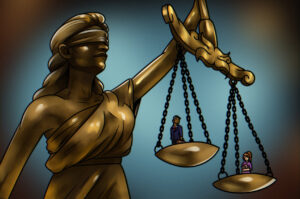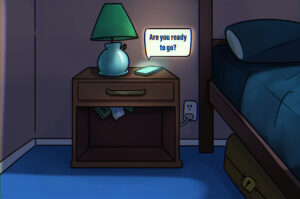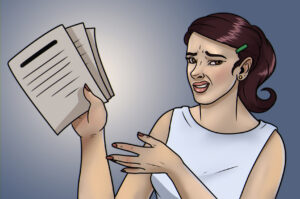Have you been accused of family violence?
After a really disastrous breakup, it’s not unheard of for one spouse to claim to to have been a victim of family violence. Sometimes the spouse finally found the strength to put their foot down and leave. It takes a lot of courage and those spouses are truly commendable for finding the strength to end the relationship. Other times, there was no family violence but the decision to say it occurred was self serving to the so-called victim. People are not always honest. Anyone accused of family violence will be triggered by it. There is a stigma associated with being called “abusive” and nobody wants to be described that way under any circumstances. It doesn’t matter whether it’s true or not.
Anyone that has been labeled as an abuser must try and handle the situation as calmly and rationally as possible. If there has been an Emergency Protection Order (“EPO”) or any other no-contact order issued, it’s very important to follow the terms of the order. The only thing anyone accused with family violence can control is their own actions and their own reactions to the situation. Any crazy decisions that are made impulsively or out of spite will backfire. It’s difficult to dispute real or fake allegations with irrational behaviour and retaliation.
Control what you can.
It doesn’t matter what you think if you’ve been accused of family violence. You don’t get to decide how your words or actions made someone else feel. It’s a bad idea for anyone to try and talk their way out of family violence accusations by explaining how someone else actually feels. That’s out of an accused’s control. Family violence allegations need to be disputed with the facts and concrete evidence.
Yes, this seems like common sense. However, it’s pretty common for the perpetrator of family violence to fail to see how their actions may have impacted others. If the self-labeling victim feels afraid because of something that was done or said – they are entitled to have those feelings. It’s not up to a blamed perpetrator of family violence or anyone else to decide how they actually feel.
The only thing anyone can control is their own actions. If there is no accountability for how those actions affected someone else – it’s a red flag. Everyone deserves to have their feelings heard and validated. If something was done or said that was hurtful – it’s ultimately a learning experience. Harm reduction strategies should be used to avoid harming others like that again. For starters, offering an apology can show accountability for any harm that may have been caused. Empathy is a better approach compared to dictating how someone else should actually feel in those circumstances.
What more can you do?
Anyone accused of family violence must take steps to learn from the experience and to protect themselves from future family violence accusations. If calling five times was described as harassment – it’s probably best to refrain from calling five times again in the future. The victim might even try to escalate the situation to trigger a reaction or they might deliberately set a trap. Someone who wants to be a victim will find a way to spin the situation to be one, one way or another. To avoid traps, all communication or in person interactions with someone claiming to be abused by you should be limited, preferably in writing, and in the presence of others who could testify as a witness if needed.





